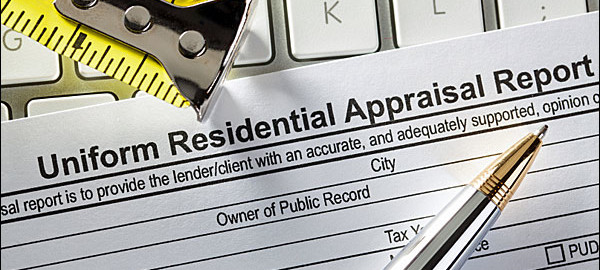This article explains the four most common valuation methods used for real estate and property transactions, including how and when they are used. It’s important to note that the methods below are not necessarily mutually exclusive. Homeowners, lenders, mortgage servicers, investors, and other professionals use one or more of these valuation methods, depending on circumstances and the type of transaction. Often, one valuation method is used to confirm or quality-check the results of another.
Comparative Market Analysis (CMA): A CMA is prepared by a licensed real estate professional and is most commonly used to help determine a home’s listing price. The CMA should not be the only factor in determining listing price; rather, it is a guide for the agent and owner to evaluate the active and sold competition, and to serve as a tool in the price-setting process. A CMA can also be used—depending on variations in state laws—value trend analysis, mediation and negotiation. It should not serve as the sole method of valuing collateral in a real estate transaction where a mortgage is being originated.
Automated Valuation Model (AVM): An AVM is a service or software that provides property valuations, often based on mathematical modeling. AVMs are most commonly developed or used by lenders, servicer appraisal staff, and investors. While AVMs are most often used by lenders or secondary markets to confirm valuations provided in appraisal reports, they should not be used as the sole method to value collateral in a real estate transaction where a mortgage is being originated as they are notoriously inaccurate especially in communities featuring homes that vary significantly in their level of finish, amenities, size, etc. They may, however, be used as the sole valuation option for other types of transactions, such as refinances.
Appraisal: An appraisal is prepared by a licensed or certified appraiser and is an opinion of a property’s value. Appraisals are most often used to value collateral in a real estate transaction and are required for most federally-regulated transactions above $250,000. Exceptions include transactions where no new money is involved. In practice, appraisals are used for the vast majority of purchase money transactions involving a loan. For the most part, lenders or servicers determine the use of appraisal or another acceptable methodology for transactions that are not purchase money.
Source: www.nar.realtor/appraisal/valuation-services-matrix
If you, or someone you know is considering Buying or Selling a Home in Columbus, Ohio please contact The Opland Group. We offer professional real estate advice and look forward to helping you achieve your real estate goals!
The Opland Group Specializes in Real Estate Sales, Luxury Home Sales, Short Sales in; Bexley 43209 Columbus 43201 43206 43214 43215 Delaware 43015 Dublin 43016 43017 Gahanna 43219 43230 Grandview Heights 43212 Hilliard 43026 Lewis Center 43035 Marysville 43040 43041 New Albany 43054 Pickerington 43147 Powell 43065 Upper Arlington 43220 43221 Westerville 43081 43082 Worthington 43235








